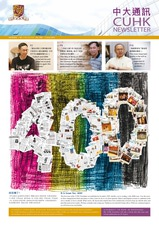This is the last instalment of ‘Style Speaks’ in its present format. Let’s talk about endings.
Committee papers inevitably invite approvals or directions. A letter ends by reaffirming the relationship between writer and recipient. Depending on the degree of formality or intimacy, one writes:
Yours faithfully, / Yours sincerely, / Yours affectionately,
Fairy tales end by ‘And they lived happily ever after.’ The novel’s is more amorphous, with the modern ones tending to have open endings, that is, endings which are potential beginnings. In the context of movies, the audience would know they will be getting a sequel.
For expository writing in general, the thesis should be re-stated in a novel way in the last paragraph, or conclusion, but nothing entirely new should be said. Thus Bertrand Russell ends the prologue to his Autobiography (cf. Newsletter No. 398):
This has been my life. I have found it worth living, and would gladly live it again if the chance were offered me.1
In a prescient analysis of the demons of globalization (This was in 1990!), Daniel E. Koshland, Jr., long-time Editor of Science, states that economic policies and human behaviour obey a few laws just as thermodynamics does. The parallel between nature and society is given a new spark in the last sentence with a common sensation:
The obvious correlation between the laws of thermodynamics and the laws of sociodynamics is that whenever they are violated, someone will feel the heat.2
Editor
_____________
1 Bertrand Russell, ‘What I Have Lived for’, in Autobiography (London: Routledge, 1993).
2 Daniel E. Koshland, Jr., ‘The Laws of Sociodynamics’, Science, Vol. 249, No. 4967 (27 July 1990), p. 341.

































































































































































社交網路書籤